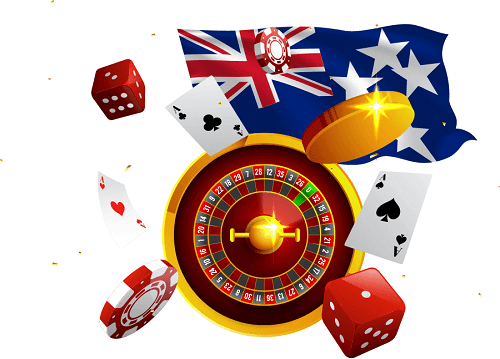
The history of gambling in New Zealand is a fascinating journey that reflects the socio-cultural evolution of the nation. From its early roots among Māori tribes to the present-day regulated gambling industry, New Zealand has experienced significant changes in its approach to gambling activities. The gambling landscape has continually adapted to societal needs and government regulations, marking its importance in New Zealand's social fabric.
The Māori people engaged in various forms of betting before European settlers arrived, using games of chance as entertainment. During the 19th century, with the influx of British immigrants, gambling underwent transformations, leading to the establishment of organized betting and lotteries. By the 20th century, the burgeoning of sports betting and the rise of casinos marked a new era, ushering in a more structured gambling environment regulated by the government.
In recent decades, gambling in New Zealand has become synonymous with both leisure and social challenges. The government has implemented various measures to ensure responsible gambling, while the industry has grown exponentially with the introduction of online gambling platforms. The enduring appeal of gambling, intertwined with the country’s history, showcases not only a form of entertainment but also the ongoing conversation around community well-being and responsible gaming.
The introduction of the lottery system in the 1860s marked a pivotal moment in New Zealand's gambling history. This new form of gambling aimed to raise funds for public works and charitable causes. Initially, these lotteries were conducted informally, relying on community involvement and local organizers.
The Gambling Act of 2003 was revolutionary, bringing a legal framework to gambling activities across New Zealand. This legislation aimed to regulate gambling activities, promote responsible gambling, and ultimately reduce harm associated with gambling addiction. It established guidelines for conduct, management, and the operation of gaming machines and casinos.
The establishment of SkyCity Auckland in 1996 was a landmark event in New Zealand’s gambling sector. As the country’s largest casino, it offered a variety of gaming options such as table games, slots, and world-class entertainment. SkyCity transformed the perception of casinos in New Zealand, drawing both local and international visitors.
The 21st century has seen the rise of online gambling in New Zealand, broadening access to various betting platforms. Online casinos, sports betting, and poker have become increasingly popular, offering convenience and accessibility that traditional venues cannot match. This shift has sparked both excitement and concern regarding gambling behaviours and potential addictions.
The Ministry of Social Development (MSD) plays a crucial role in gambling policy in New Zealand. It is responsible for creating initiatives aimed at reducing gambling harm and promoting public awareness about the risks associated with gambling activities. The MSD collaborates with various organizations to monitor and assess gambling impacts on communities and individuals.

In addition to their roles in regulation, the ministry also provides funding for community-based programs focusing on gambling harm prevention. These programs are pivotal in supporting individuals and families affected by gambling issues, demonstrating the commitment of the MSD to fostering a healthier society through effective policy-making and public education.
iGaming emerged as a significant aspect of New Zealand's gambling industry in the early 2000s, allowing players to access countless games and betting options from the comfort of their homes. With the rapid advancement in technology, players could engage in various gambling activities, including poker, sports betting, and casino games via online platforms.
Regulations for iGaming have been adapted over the years to address concerns surrounding gambling addiction. Although various offshore gambling websites are popular among New Zealand residents, the government emphasizes the importance of regulated platforms to ensure player safety and responsible gaming practices.
Casinos, sports betting, gaming machines, instant games (scratchies), and Lotto are integral to New Zealand's gambling landscape. The emergence of casinos transformed gambling into a more structured environment, offering a plethora of gaming options for enthusiasts. Sports betting has gained immense popularity, allowing fans to connect more deeply with their favourite teams and events.
Gaming machines, commonly found in pubs and clubs, contribute significantly to gambling revenues, while scratchies provide a quick and straightforward form of gambling that appeals to a broad audience. Meanwhile, Lotto remains a staple of New Zealand's gambling culture, with sales generating substantial revenue for community projects and initiatives.
The history of gambling in New Zealand shows a steady evolution from informal local practices to a structured industry governed by laws and regulations. Initially embraced as a form of social entertainment, gambling has undergone substantial changes to adapt to societal norms and needs, reflecting the dynamic nature of New Zealand society.
As the gambling landscape continues to evolve with technological advancements, the importance of promoting responsible gambling practices has never been more critical. Understanding the historical context surrounding gambling can provide valuable insights into the present and future of this enduring aspect of New Zealand culture.
The intricate history of gambling in New Zealand showcases a journey shaped by social attitudes, legislative milestones, and community engagement. From its early practices to contemporary gaming activities, the evolution of gambling reflects broader societal changes and continues to influence New Zealand’s cultural landscape. As gambling remains an integral part of entertainment, the focus on responsible gaming practices and community welfare is paramount to promoting a healthy gaming environment.
It’s essential to remember that while gambling can be a form of entertainment, it carries risks of addiction and harmful consequences. Players should approach gambling responsibly and seek help if needed. Numerous resources exist to assist individuals facing challenges related to gambling. Be mindful of your gambling habits and prioritize your well-being and that of your loved ones.

Session expired
Please log in again. The login page will open in a new tab. After logging in you can close it and return to this page.